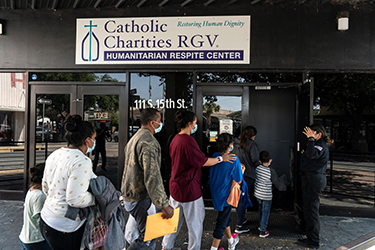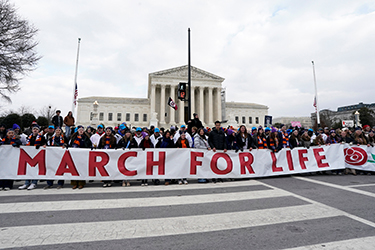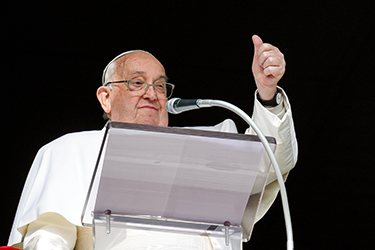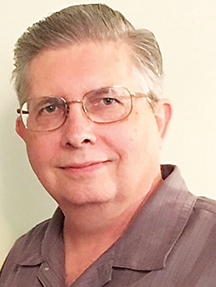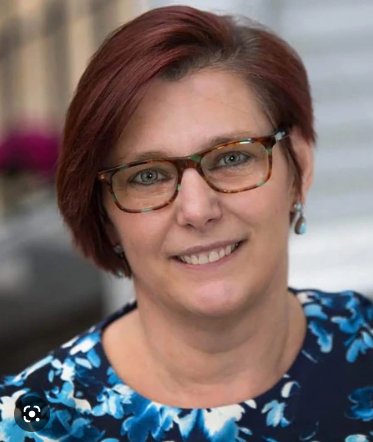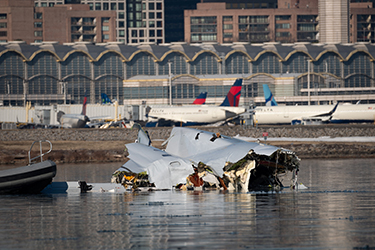By Bishop Joseph R. Kopacz, D.D.
The Jubilee Year of Hope is well underway, a year of favor from the Lord in which Pope Francis is encouraging and challenging us to be Pilgrims of Hope. What is a pilgrim anyway?
Over 40 years ago in the early years of my priesthood I participated in a biblical study tour to the Holy Lands and Rome to experience firsthand the earthly life of Jesus, the beginning of the church in Jerusalem, and its growth in Rome. In preparation for this three-week spiritual adventure the leader reminded all participating priests that we are undertaking this trip as pilgrims, not tourists. Most of us heard the call for pilgrimage and packed simply, except for one in the group who took along a large empty suitcase for souvenirs.

Later this year the Diocese of Jackson will sponsor a pilgrimage to Rome that will include passing through the Holy Door of one of the four major Basilicas. We will see ourselves as pilgrims for these ten days, all the while keeping in mind that the Holy Father is exhorting us to be pilgrims of hope in heart and mind as an enduring and defining state of life.
How? One of the prophets of old illuminates for us the path of pilgrims. “You have been told, o mortal, what is good and what the Lord requires of you: to do justice, to love goodness, and to walk humbly with your God.” (Micah 6:8) It’s a way of being in this world that overcomes and transcends all who cast their shadows over the light of faith, the power of hope and the primacy of love. As pilgrims we are called to touch lightly on this earth, not in a superficial manner, but in a way that inspires us to understand that to walk upon this earth is a miracle.
I am writing this column on the 11th anniversary of my consecration and installation as the 11th bishop of the Diocese of Jackson. Applying the lens of Pilgrims of Hope I have experienced my episcopal ministry at its core as pilgrimage, journeying to many holy sites, i.e. our parishes, schools and ministries, and back again to the Cathedral of St. Peter the Apostle. In ordinary and extraordinary moments, in season and out of season, my life is filled with encounters with the sacred. Recognizing this gift is the key. Each of us in has to do the personal work to “stir into flame” (2Timothy 1:6) our baptismal call to be alive and active as the Lord’s anointed and pilgrims of hope. Our identity as God’s children flourishes through prayer, through the sacraments, through works of justice and goodness accomplished in a spirit of humility. When we fix our eyes on Jesus (Hebrews 12:12) “each of us may be able to offer a smile, a small gesture of friendship, a kind look, a ready ear, a good deed, in the knowledge that, in the Spirit of Jesus, these can become, for those who receive them, rich seeds of hope.” (Jubilee Document)
As this edition of Mississippi Catholic circulates throughout the diocese, I will be in India for my second pastoral visit to this amazing country from where we have 15 priests serving in our diocese. Truly, this is a pastoral visit to spend time with the bishops and provincial who have priests on mission in the Diocese of Jackson. But at its core it is a pilgrimage to many holy sites and ministries in the land where St. Thomas the Apostle first proclaimed the Gospel.
Wherever we are in this world, St. Paul reminds us that in the end “our citizenship is in heaven.” Yet, the journey begins here and the blessing and challenge is to see this world as God sees it, and to accompany one another as pilgrims with an abiding concern for justice, goodness and solidarity for all.

